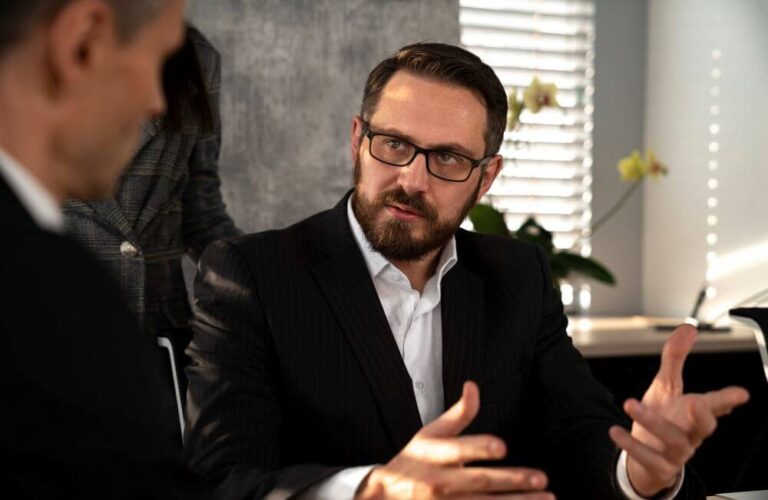The legal profession harbors numerous specializations, yet personal injury law stands apart through its unique combination of advocacy, healing, and societal change—elements that become apparent when hearing veteran attorney David Oddo describe his decades of experience. During a wide-ranging conversation about his career path and professional philosophy, Oddo painted a portrait of legal work that transcends conventional boundaries while remaining firmly anchored in human connection.
Healing Beyond Legal Documents
Most people never anticipate needing a personal injury attorney until catastrophe strikes—a car accident, medical negligence, or workplace disaster. When these moments arrive, attorneys like David Oddo step into roles far exceeding standard legal representation.
“When you do this kind of work, you are representing people during catastrophic need—after suffering catastrophic injury, experiencing a death in their family, struggling with physical injuries, accumulating medical bills they cannot pay.”
His phone rings constantly with clients navigating the worst time in their lives. Oddo interrupts whatever he’s doing—even interviews—to answer client calls.
“Should a client call during our conversation, I’ll have to answer it immediately,” he explained. “Someone who lost her husband three months ago—I would never say ‘I’m busy on a call, contact me later.’ That approach remains unthinkable.”
Various catastrophes bring clients through his doors: paralyzed construction workers unable to support young families, parents whose children died through hospital negligence, families reeling after preventable accidents claimed loved ones. Each case demands emotional investment alongside legal strategy.
Creating Safer Communities Through Accountability
Personal injury litigation carries broader implications beyond individual compensation—accountability mechanisms that shape corporate behavior and improve public safety standards.
David Oddo offered historical examples demonstrating how litigation transformed dangerous products: “Remember Ford’s Pinto? When designed, it contained a deadly flaw—even minor rear impacts caused explosions due to faulty positioned fuel tank. Children’s pajamas were flammable due to chemical treatments during manufacturing. Certain tire brands experienced catastrophic failures at highway speeds.”
One particularly satisfying aspect involves changing dangerous practices before additional injuries occur. Oddo recalled a case involving defective pressure cookers with faulty sensors causing serious burns. It was just one example of how a lawsuit can prompt industry-wide safety improvements rather than continuing the dangerous status quo.
Healthcare systems similarly respond to litigation pressure. When a hospital is sued for protocol violations, institutional changes typically follow. “Quality control departments implement changes,” he observed. “Insurance companies demand procedural improvements to prevent future lawsuits. Although their primary concern should be in improving patient safety.”
Medical malpractice litigation similarly prompted accountability for misdiagnosis. Oddo spent years advocating for Lavern’s Law—legislation extending New York’s statute of limitations for cancer misdiagnosis cases. Previously, patients who discovered a missed diagnoses after legal deadlines expired were left without recourse against negligent providers.
Wrestling With Antiquated Legal Frameworks
Despite these successes, David Oddo contends daily with frustrating legislative limitations—particularly New York’s wrongful death statutes that he describes as “embarrassing” and “antiquated.”
Current law values human life primarily through economic productivity rather than emotional connections or inherent worth. “New York state law says your life has no value unless you generate income and financially support others,” Oddo explained. “It’s a purely economic valuation.”
Families struggle to comprehend this reality after losing loved ones. “I regularly have to explain to grieving families that the law in New York does not provide compensation for their grief,” Oddo shared.
These conversations prove particularly difficult with families who lost children, elderly parents, homemakers, or recent graduates who hadn’t yet established income streams. Without economic dependents, their deaths generate minimal compensation under current law—regardless of emotional devastation inflicted.
Oddo actively supports the Grieving Families Act, which would allow compensation for family members’ emotional suffering rather than limiting recovery to financial losses. “Families suffer incrementally every day after losing a family member,” he noted. “They watch milestones pass—graduation days, wedding dates, grandchildren births—all triggering renewed grief.”
Cultural differences magnify these inequities. He described representing Chinese immigrant families where grandparents played central caregiving roles while parents worked multiple jobs. When accidents claimed these grandparents, surviving family members received minimal compensation despite devastating emotional impact.
Finding Meaning Through Restoring Balance
While handling traumatic situations daily might seem emotionally draining, David Oddo described profound satisfaction emerging from implementing fundamental fairness principles.
“Leaving work after securing settlements that stabilize families financially for years is meaningful,” he reflected. “Simultaneously holding negligent parties accountable creates balance.”
His approach connects directly to childhood lessons about personal accountability. “Growing up, neighborhood rules were clear—you break it, you fix it,” Oddo recalled. “Nobody questioned responsibility. You fixed your mistakes regardless of the cost.”
The same principles apply professionally. “Why would we exempt doctors, drivers, property owners or construction managers from basic accountability?” he asked. “Whether you harm someone intentionally or negligently, you must be held accountable. When the safety of construction workers, other drivers, pedestrians or patients is disregarded and harm results, the wrongdoer must be held to account, and pay for the damage they cause. “
When asked about what motivates him, Oddo doesn’t hesitate,” It is the personal connection with the client and their story. An understanding of the loss, hardship, and suffering that they are enduring as a result of their injuries or loss. “ These personal connections eliminate any need for external motivation. “Understanding what awaits on your desk each day—what remains at stake for my clients—provides all the necessary motivation,” he concluded.

